WILL QUANTUM COMPUTERS TRANSFORM THE NEXT CENTURY?
Today I’d like to speak about quantum computers and to share my ideas of their purpose in the nearest future. As you know, applying the laws of quantum mechanics it’s actually possible to create a new type of computing machine, enabling to solve some of the issues, being currently unable to resolve even upon the use of the most powerful machines. As a result, the speed of major complex computations will significantly increase, for instance, the messages sent via quantum coupling lines will be impossible to capture or to copy. Sounds quite fantastic, isn’t it? Furthermore, today we already have working prototypes of future quantum computers. So, let’s consider this topic more precisely.
How does quantum computer work?
In order to understand working mechanism of a quantum computer, it’s preferable to recollect some general basics of quantum systems.
To understand the nature of a quantum world it’s not obligatory just to rely on daily practice. It bears noting, that quantum particles are in their usual state, while we’re just beginning “to observe” them, another word to measure them. But if only we discontinue measuring them, they actually move from their usual state into some other various states. It means that the electron or another quantum object will be partially located in the various points simultaneously. But, moreover, it’s quite essential to understand, that this quantum object won’t be subdivided into other particles, because if it did so, then we actually would be able to isolate any subdivided particle safely and for example to measure its charge or mass. But the practice shows that electron continues to be indivisible in any certain point, despite the fact that it’s existing in some other ones synchronically. Such a state of an electron is defined as “quantum state superposition” and usually this phenomenon is described with the help of wave function, introduced by German physicist Erwin Schrödinger in 1926. The very core of wave function lies in a fact, that its squared modulus defines the probability to discover the particle in the certain point at the moment. The property of quantum particles to be in many states synchronically may be defined as “quantum parallelism” as well, and is successfully used in quantum computation today.
The notion of quantum bit
The main slot of the quantum computer is a quantum bit, or if to say briefly “q-bit”. Q-bit is defined as a quantum particle, which exists in two basic states, being designated with the numbers 1 and 0. These two designations may correspond with main and excited state of an atom, the up and down direction of the atomic core, two possible states of the electrons in the semiconductor, etc.
Quantum register
It’s interesting to note that quantum register is quite similar to the classic one, being used into the contemporary computer. Another word, it’s a chain of quantum bits, upon the use of which it’s possible to perform one and two-bit logical operations (similar to the application of logical operations in the classic register in the usual computer).
To the basic state of the quantum register, formed by L-q-bits we can actually refer all possible sequences of 0 and 1of L-length. Totally it may exist 2L of various combinations. They can be considered as number record in the binary form, starting from 0 and up to 2L-1.
But the most important here is the fact, that these basic states don’t conclude all possible values of the quantum register (as distinct from classic one), as there exist superposition states, assigned by the complex amplitudes, depending on normalization condition. Today there just doesn’t exist any analog to quantum register among the classic ones. It bears noting, that the state of the contemporary classic register is just a little shade of overall power of the quantum one.
Imagine yourself that the quantum register is under the external influence, for example, some of the electric pulses are directed into the certain part of the space. If to speak about the classic register, the pulse, which may be considered as computing operation, will alter L of the variables.
If we are dealing with the quantum register, the same pulse may alter up to 20 variables at the moment. But, furthermore, here we may actually conclude that small quantum registers (L<20) are able just to demonstrate some separate nodes work, including the working principles of quantum computer generally, but actually they won’t be practical in use, as they wouldn’t be able to work faster than contemporary computing machines, but their cost will be much more expensive beforehand.
However, we may deduce an inference that the computers, working according to the laws of quantum mechanics are principally new and truly essential step in the evolution of computing systems. But we need just to create and develop them.
Quantum computers today
As I’ve already mentioned above, the prototypes of quantum computers already exist in our world. But contemporary quantum systems are unable to ensure the reliable computation today, as they are not enough controlled or just are under the influence of various interference levels. But at the same moment, there don’t exist any physical prohibitions for the development of the efficient quantum computer, it’s just necessary to overcome technological difficulties. Also, I may add that nowadays the studies are actively conducted, and very likely the efficient quantum computer still will be developed in 5-10 years.
Quantum computers in the future
Let us imagine, how the first quantum computer will actually look like. I dare suppose with a great probability, that it will look like a huge computing machine, containing the thousands of controlling elements, making an impact on each q-bit locally. But in what way would it be possible to ensure this impact? I suppose, that more than likely with the help of electric pulses, fed onto microelectrodes, connected with each q-bit. I think that electric control method is the most probable one because it’s already widely used in microelectronics to control classic logical elements. That’s why this method, I think, is the most upcoming one for the development of scalable quantum computers.
If somebody supposed that some other variant, as a result of a certain technological progress might occur, I think that some revolutionary inventions are quite hard to predict today.
In such a way, it’s highly possible that future quantum computers will be manufactured upon the use of traditional methods of microelectronic technologies development, and will contain the majority of controlling electrodes, reminding of a contemporary microprocessor.
Furthermore, in order to decrease the interference level, which is a crucial element in ensuring the normal work of the quantum computer, the first models, I suppose, might be cooled with helium fluid.
In addition, I consider, that the first models of the quantum computers will be really expensive devices, served by the whole team of computing engineers, and at the very beginning they will be available just for state institutions and large commercial enterprises.
Possible application areas
If to speak about the possible application areas of quantum computers, so, it is worth saying, that their introduction won’t lead to resolving of the issues, which are principally unable to resolve today, at least for the first time. But however, they will enable to resolve classic issues with much faster speed. Moreover, the creation of quantum coupling will actually become possible, and it will lead in its turn to the development of quantum Internet. Quantum coupling will make possible to provide the much more protected communication of everyone interested with each other. Moreover, your information, stored in quantum databases, will be much more protected from copying as well. The enterprises, which will manufacture software for quantum computers, will be able to protect it from any type of copying, including illegal one.
So, in conclusion, we may think over, what actually will happen with contemporary classic computers. Will they discontinue to be used in the future? I guess not. I think that either contemporary classic computer or future quantum computer will be actively used in various application areas, however, their correspondence to each other on the market will significantly change for sure.
Follow me, to be the first to learn about my publications devoted to popular science and educational topics
With Love,
Kate
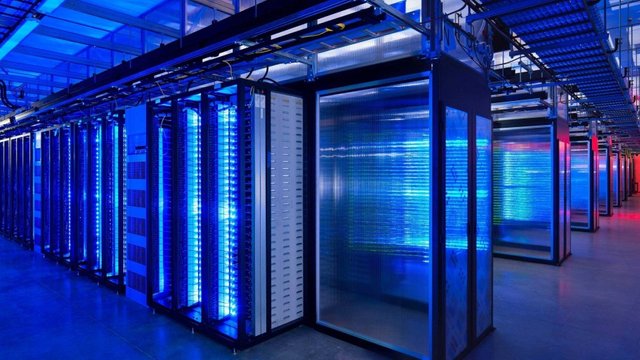
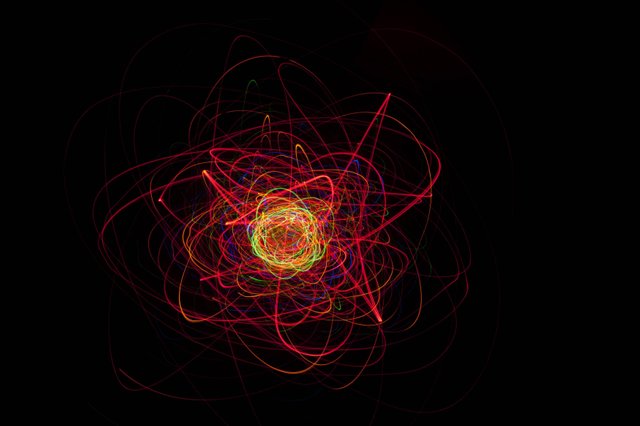
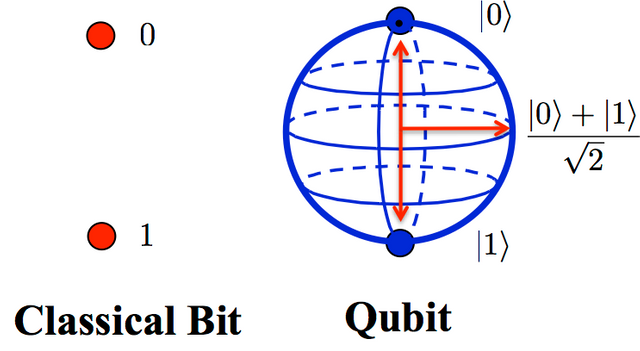
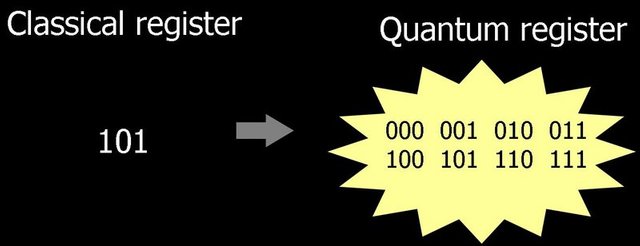
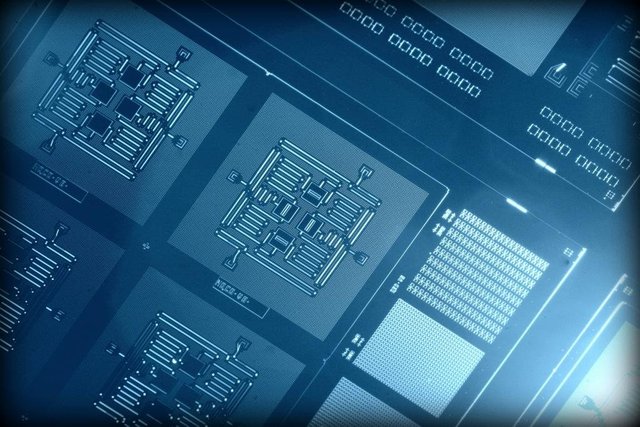
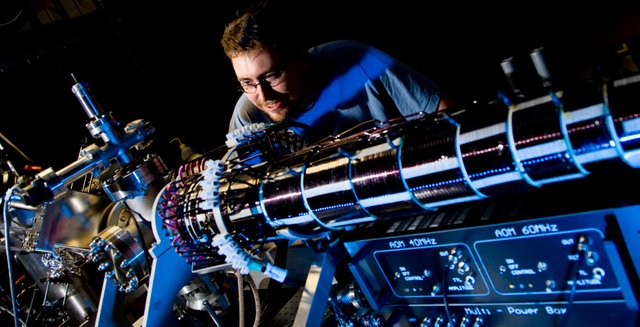
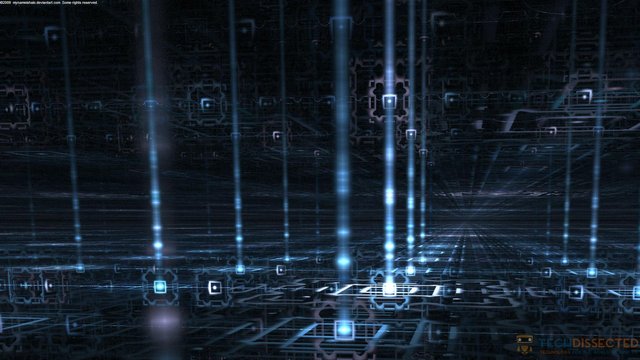
I guess way down the line, when Quantum processing fully integrates with VR technology, is when the real paradigm shift takes place.
This is a great piece and one my followers would be interested to see. Thanks for sharing. I'm happy to upvote and share this on Twitter✔ for my followers to read. Following and looking forward to reading more of your posts. Cheers. Stephen
Stephen, thanks a lot for sharing. I hope your followers will scoop up some useful information from this article. Cheers!
Quantum computer would be ultra fast - they might be used for hacking blockchain? Can you please clarify on this? @krishtopa
It seems that quantum computers will have very good performance at the calculation of hashes that means that they possibly can outperform existing mining hardware.
Hacking of blockchain depends on its type of consensus. If it's POW (like at Bitcoin) then to hack blockchain it's required to possess at least 51% of overall computational power. So if someone will have very powerful quantum computer that outperforms joint computational power of all miners, then he can add fake data to blockchain (to hack the database)
If consensus mechanism is DPOS (like in Steemit) where blocks are validated by witnesses, then even having big computational resources will not help to hack it.
I'm not an expert, so I hope someone will correct me if I said something wrong